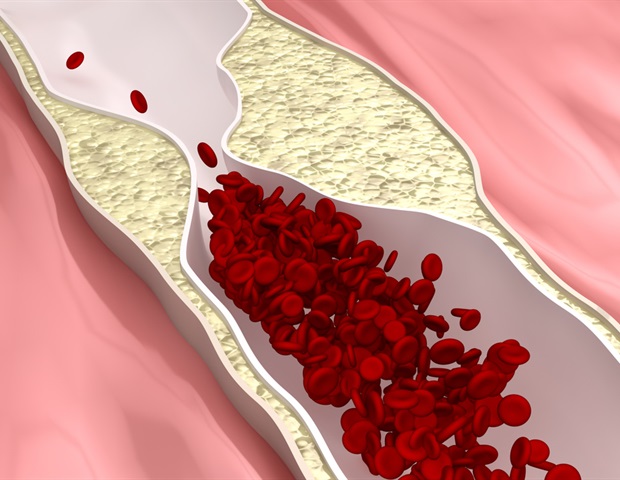
Atherosclerosis is the underlying condition that causes heart attacks and strokes. Researchers at Radboudumc in the Netherlands have discovered a protein that appears to play an important role in atherosclerosis. The protein is called Prosaposin, and its role in atherosclerosis was unknown. “We identified Prosaposin as a potential new target for the Science Translational Medicine.
Atherosclerosis is caused by cholesterol that builds up in the wall of the vessel and triggers persistent inflammation. Cholesterol lowering drugs have been proven to help treat atherosclerosis. Recent research has shown that preventing inflammation can help prevent heart attack and stroke. The challenge now is to find ways to prevent inflammation especially in atherosclerosis, without compromising the rest of the body’s defenses that protect us from disease.
Increased metabolic rate
Macrophages are the cells that are most responsible for inflammation in atherosclerosis. The inflammatory activity of these cells is an energetic process. So the cells have to significantly increase their metabolic rate. “Solving how they do this gives us an insight into how we can reduce inflammatory activity and thus reduce atherosclerosis”.
Turn off the power
An international team of researchers, led by Raphaël Duivenvoorden of the Radboudumc in the Netherlands, has studied what happens when you “power off” macrophages. The main metabolic modifier is a protein complex called mTOR. Using nanotechnology, they were able to specifically turn off this variant in macrophages and study its effect on atherosclerosis in a mouse model. “We saw after just one week of treatment that atherosclerotic lesions decreased and the inflammation decreased”.
New protein found
This result sparked their interest in unlocking the molecular mechanism underlying this potent anti-inflammatory effect. Their analyzes consistently revealed an important role for a protein called Prosaposin. Its role in atherosclerosis was largely unknown. “In further experiments we found that Prosaposin has a significant effect on macrophage metabolism. We also saw less improvement in atherosclerosis and vascular wall inflammation in mice that cannot produce Prosaposin.”
Prosaposin and atherosclerosis in humans
To determine whether Prosaposin also plays a role in atherosclerosis in humans, they conducted a well-defined study in human atherosclerotic lesions. “We saw a large expression of Prosaposin by macrophages in atherosclerotic plaques and this was related to their inflammatory activity. It confirms that Prosaposin plays a major role in atherosclerosis, and that it is a new therapeutic target. for the treatment of atherosclerosis. “
Source:
Radboud University Medical Center
Magazine Reference:
van Leent, MMT, et al. (2021) Prosaposin mediates inflammation in atherosclerosis. Science Translational Medicine. doi.org/10.1126/scitranslmed.abe1433.